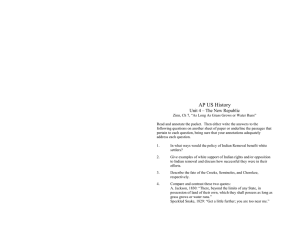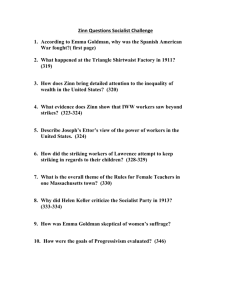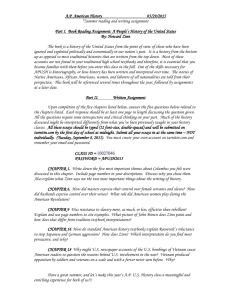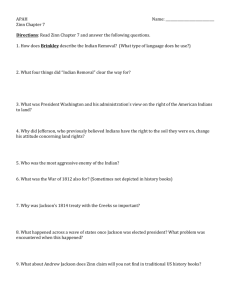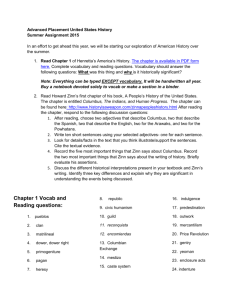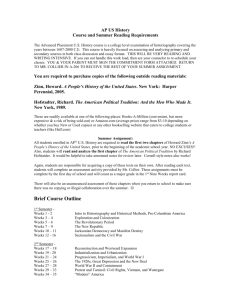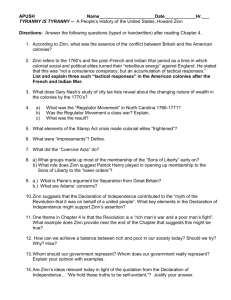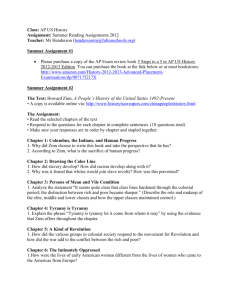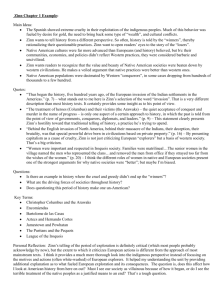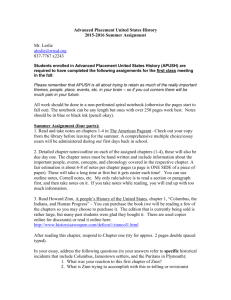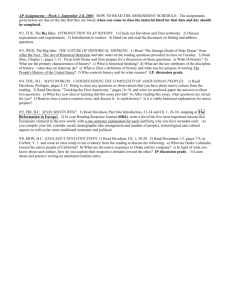Zinn Chapter 7 Worksheet: Native American History
advertisement
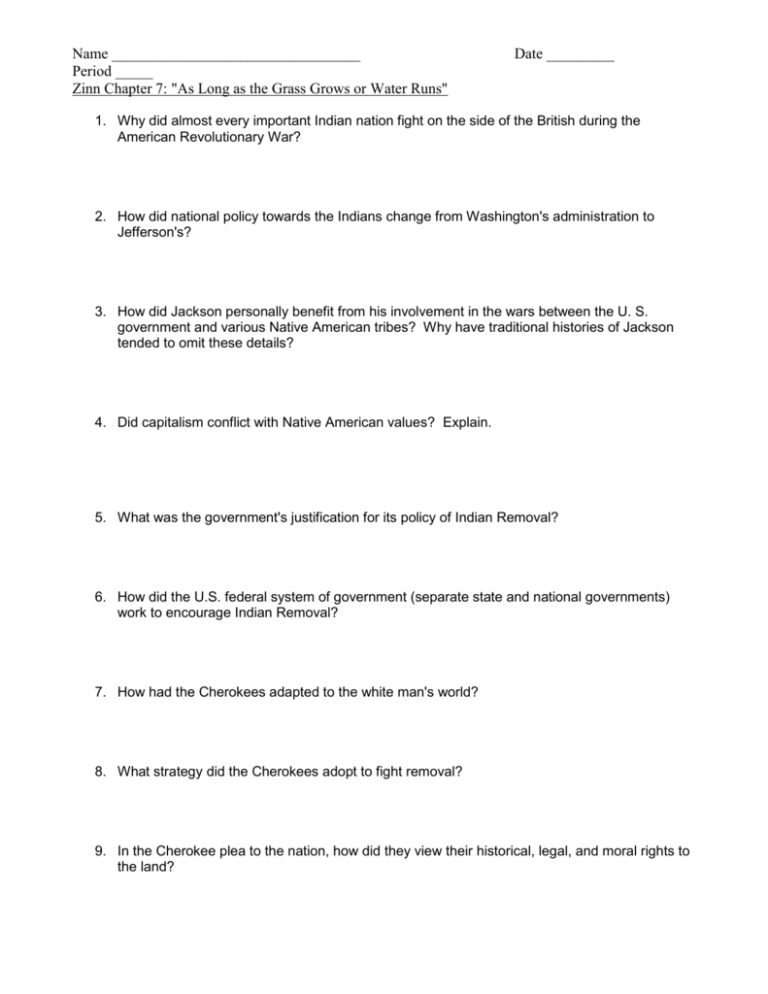
Name _________________________________ Period _____ Zinn Chapter 7: "As Long as the Grass Grows or Water Runs" Date _________ 1. Why did almost every important Indian nation fight on the side of the British during the American Revolutionary War? 2. How did national policy towards the Indians change from Washington's administration to Jefferson's? 3. How did Jackson personally benefit from his involvement in the wars between the U. S. government and various Native American tribes? Why have traditional histories of Jackson tended to omit these details? 4. Did capitalism conflict with Native American values? Explain. 5. What was the government's justification for its policy of Indian Removal? 6. How did the U.S. federal system of government (separate state and national governments) work to encourage Indian Removal? 7. How had the Cherokees adapted to the white man's world? 8. What strategy did the Cherokees adopt to fight removal? 9. In the Cherokee plea to the nation, how did they view their historical, legal, and moral rights to the land? 10. What was the "Trail of Tears"? 11. If the Cherokee removal was so dreadful that it was to be known as the Trail of Tears, why did Van Buren feel that it had the “happiest effects”? 12. What is the major theme (recurring idea) in this chapter? Zinn As Historian 1. What evidence does Zinn cite to illustrate the overall impact of Indian removal? 2. Explain Zinn’s use of irony when describing the Battle of Horseshoe Bend? 3. Explain Zinn’s view of Arthur Schlesinger’s The Age of Jackson and Marvin Meyers’ The Jacksonian Persuasion. 4. Describe evidence Zinn utilizes to assess (and challenge) the views of Lewis Cass toward Native American policy. 5. Explain the significance of the phrase: "As long as grass grows or water runs." Consider the source to determine Zinn’s purpose in quoting it.
